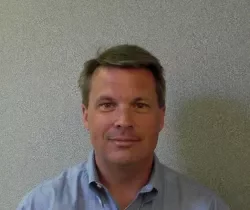Event websites have come a long way. Time was (not so long ago, even!), just having a functional, decent-looking website put you ahead of the game. Thanks to newer, shinier technology, those days are dead! Despite this, so many event organizers and association managers still make the mistake of believing that snazzy design and a few front-end bells and whistles are enough. But the truth is, the same technology advances that have raised the stakes across-the-board have also made it possible for organizations of all sizes to transform their website from a pretty, virtual brochure into a valuable operational asset, capable of lifting some pretty serious weight behind the scenes.
The Benefits of Back-End Integration
So, what do you have to gain by taking a thoughtful approach to building out the back-end of your event website? A colleague of mine quite recently tackled this very same question and her answers were nothing to shake a stick at: reduced workloads, minimized errors, consolidated data, a more efficient sales process, reliable analytics. Think about what you could gain from eliminating manual updates in separate systems every time the schedule changes or the floorplan gets switched up?! So now that you know what you might be missing out on, let’s talk about what you can do to get caught up.
Registration
For an event website, registration functionality is almost always priority one. Which makes sense given that it’s a pretty vital part of an event. In addition to providing a quick and seamless experience for front-end users, good registration software should provide organizers with real-time access to data they need to execute as well as useful analytics for improving and growing the event over time.
Analytics
On that note, a well-integrated, comprehensive analytics platform is an important tool for any organizer to have under their belt and behind the scenes of their website. Knowing what event features visitors are interested in and what content is most likely to convert is the key to success and future growth.
Databases
The database(s) in your event management software hold the keys to the kingdom in terms of the information potential attendees, sponsors and exhibitors are looking for when it comes to your site. The full conference agenda and schedule, exhibitor list, speaker bios, etc. It’s all there just waiting to be hooked up with your event website. Careful integration allows information updates and changes entered directly into your management system to show up real-time on your website. No more double data duty, no more outdated web pages!
CMS
The days of needing a full-time web developer to help you wrangle code and HTML are over (and good riddance!). Content management systems have made it possible for users with zero technical skills to update and post content with ease. There are a variety of open-source and proprietary options available at varying levels of complexity and sophistication so finding one that fits your event website like a glove shouldn’t be an issue.
CRM
Nearly 50% of planners use the web as their primary way of shopping for venues. So where do you think your attendees, sponsors and exhibitors go first for information about your event? Exactly.
Your website has the potential to pull in leads like it’s nobody’s business. Make sure you don’t let those opportunities go to waste by connecting your organization’s CRM tool with your website back-end. This way, captured leads are automatically entered into the system and immediately available to your sales team.
Accounting/Financials
With all those online payments rolling in from registration, merchandise sales and the like, why not cut-out the middle-man and set your back-end up to automatically process transactions directly in your accounting software. Say goodbye to unnecessary double-data entry and the inevitable errors that occur when things slip through the cracks.
Integration is the Name of the Game
Do you see the running theme here? Integration is where it’s at if you want a truly great event website. Regardless of the operational and management software you’re using, when you start connecting the dots between all your separate systems, the difference can be remarkable!



Add new comment